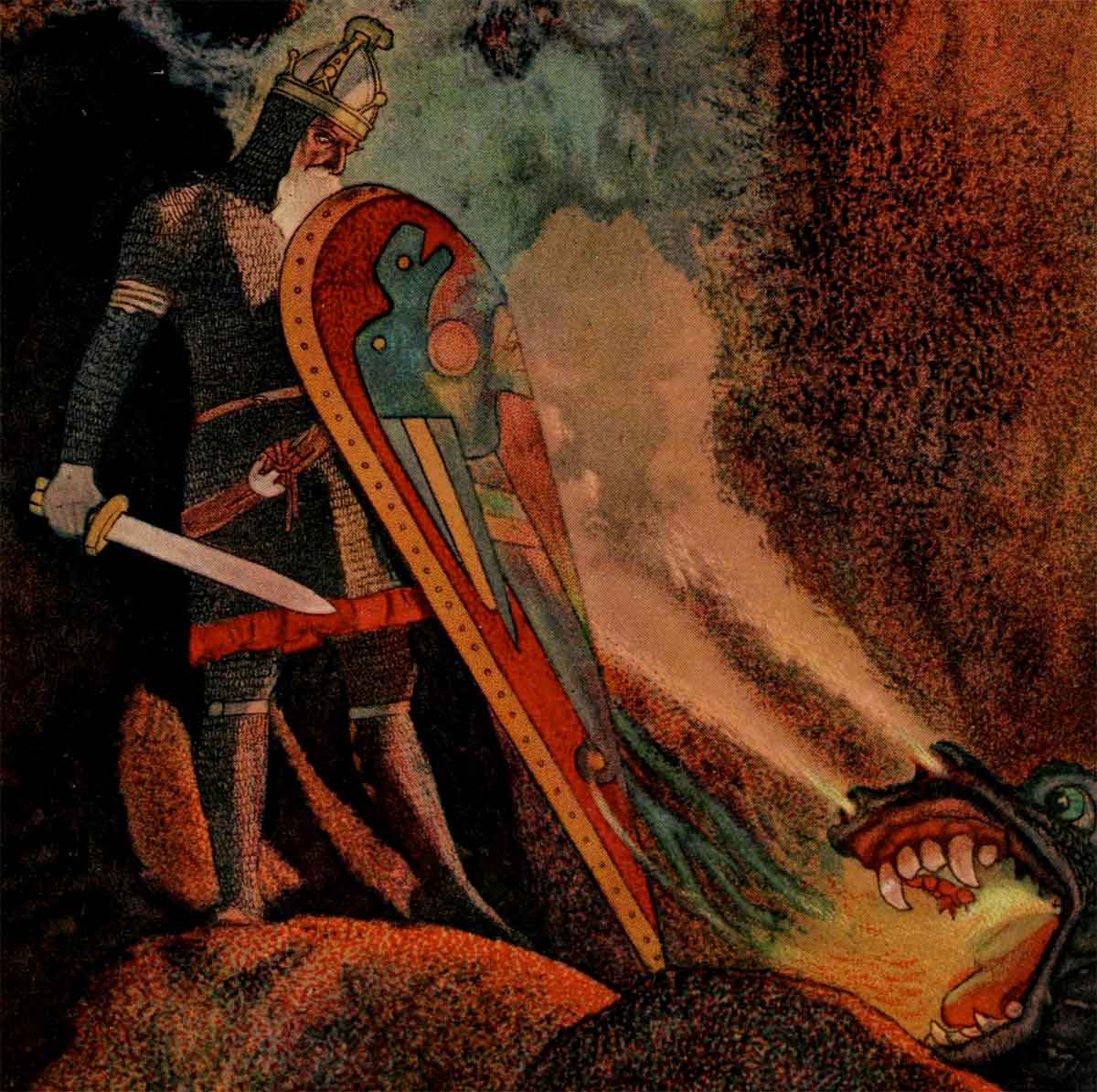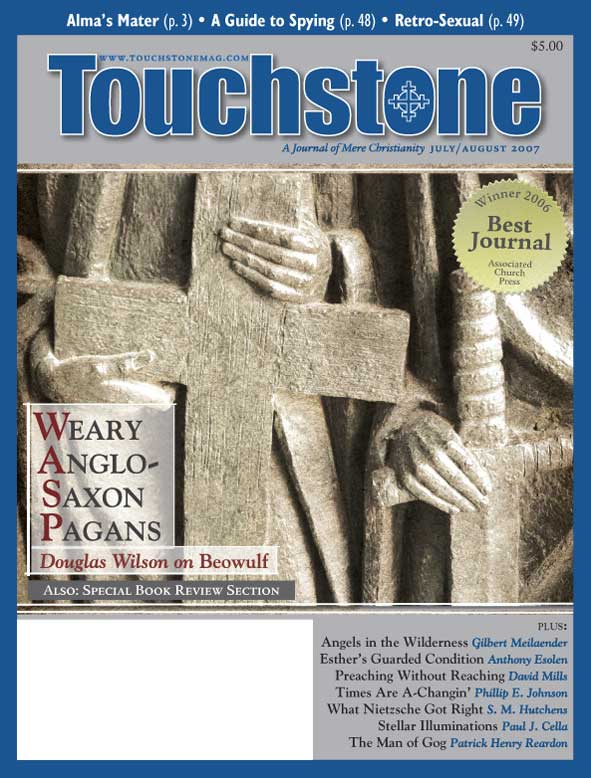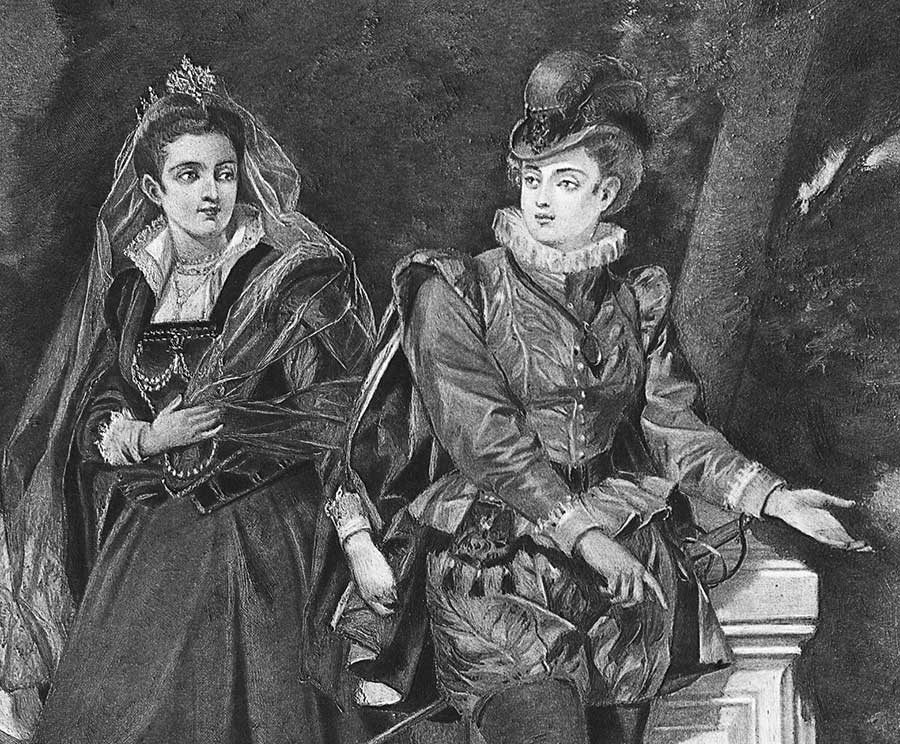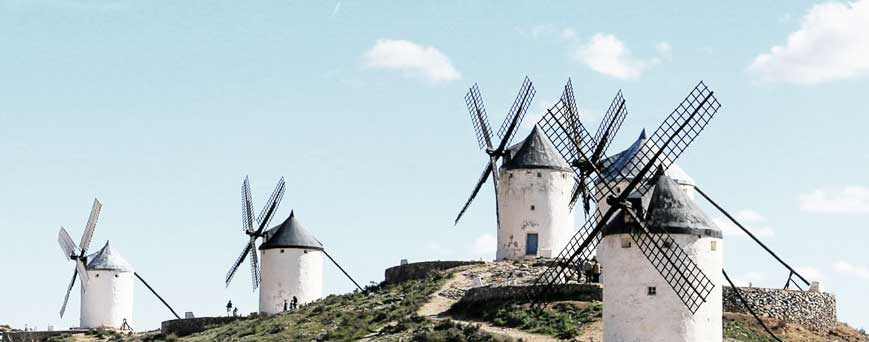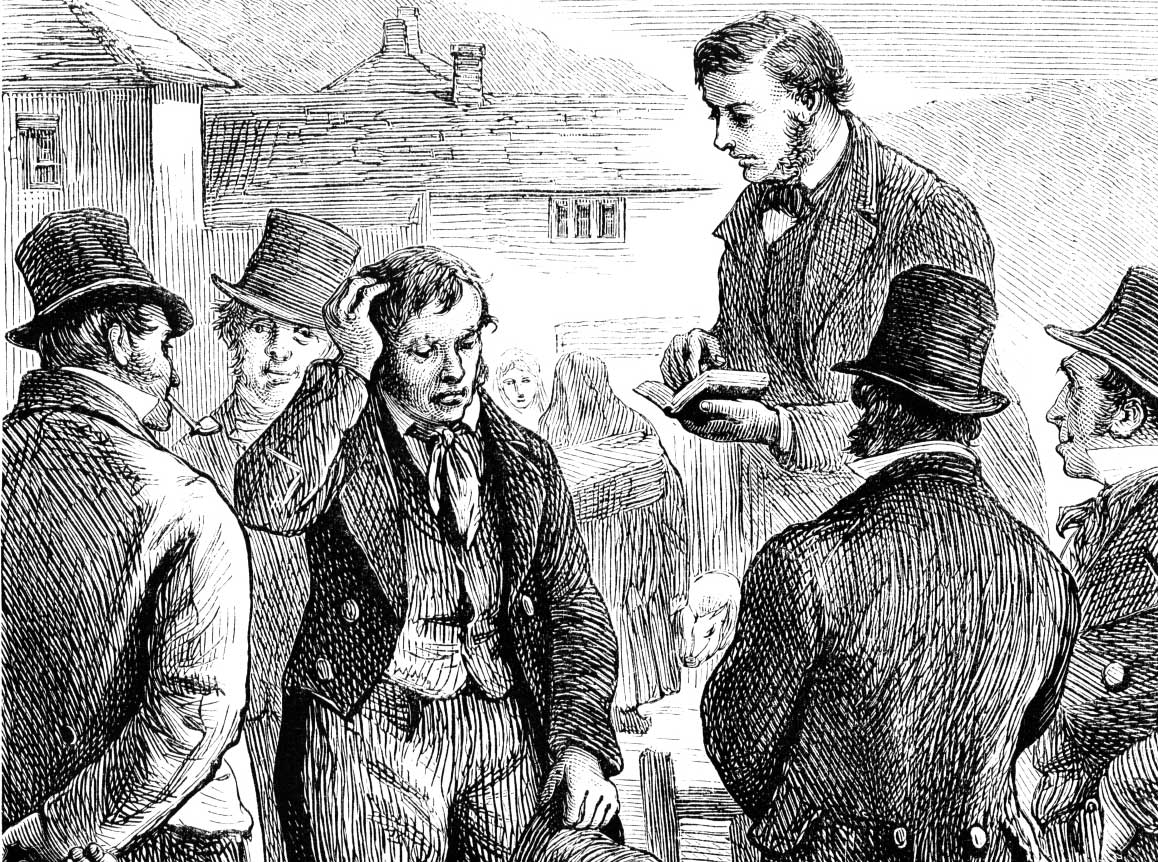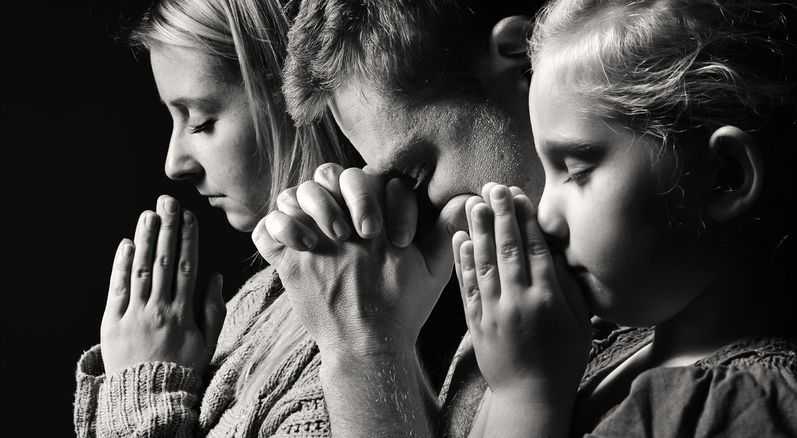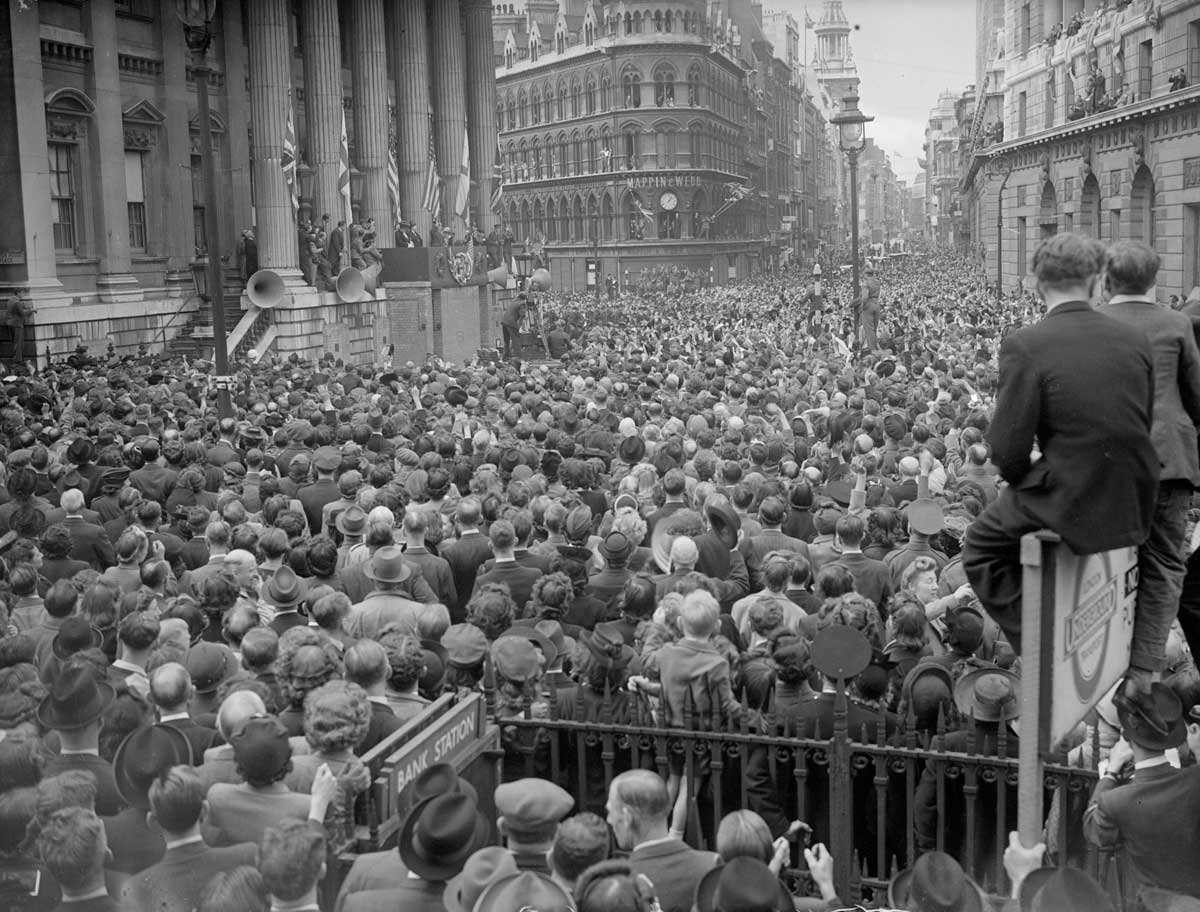Feature
The Anglo-Saxon Evangel
The Beowulf Poet Was a Shrewd Christian Apologist
B eowulf is not just an artistic gem. It is also a profound example of a potent apologetic for the Christian faith. Both the pagan and Christian elements in the poem are obvious, and I want to argue that the poet placed these two elements in tension deliberately, and that he did this to accomplish a very shrewd apologetic for the Christian faith: a kind of catechesis for a people who were recently pagan, and who still had to deal with pagans around them.
The poet is not like one of those backsliding monks at Lindisfarne, sternly rebuked by Alcuin for paying attention to the ancient heroic tales. Speaking of a minor character in Beowulf, Alcuin asked:
What has Ingeld to do with Christ? The house is narrow, it cannot contain both. The king of the heavens will have nothing to do with heathen and damned so-called kings. For the eternal king rules in the heavens, the lost heathen repines in hell.
Our poet is no conflicted monk, reading James Joyce under the covers at night with a flashlight. A thoroughly Christian poet is not showing us this paganism to say, “See, pagans can be noble too—even without Jesus!” Rather, he is refusing to engage in a fight with a heathen straw man of his own devising. He acknowledges the high nobility that could be present in that culture, but then bluntly shows us that same nobility at the point of profound despair.
The effect is extremely potent. Instead of saying that nobility is possible without Christ, the poet shows that such nobility does not keep a people from being utterly and completely lost.
Though a heroic poem about pagans that never mentions Christ, Beowulf is the opposite of syncretistic compromise. It is written to highlight the treachery as a way of life that afflicted these pagan societies from within, and the greed and plunder as a way of life that afflicted them from without (whether they were the marauders or the victims).
Our poet shows us this pagan hopelessness in a period of history just before their conversion to the Christian faith. He is recounting the testimony of his people, and, just as with modern testimonies, the sin is highlighted. But it is art to conceal art, and he leaves us hanging just before the explicit moment of conversion. His original listeners knew exactly what was going to happen next.
Beowulf’s Partial Victory
In the poem, the Danes are afflicted by a monster named Grendel, who has for twelve years had the run of their great hall, Hereot, at night, killing many of the Danes, but their elderly king, Hrothgar, cannot deliver his people. Beowulf, a young Geat adventurer, arrives and volunteers to fight the monster (the Geats were a tribe from what is now Sweden).
So Beowulf sleeps in the great hall, where he is attacked in the night by Grendel. He tears off the monster’s arm but fails to kill him there in the hall. Grendel lopes off to die back in his underwater cave. There is great rejoicing among the Danes, but Grendel’s mother returns and exacts her revenge. Beowulf follows her back to her underwater lair and there kills both her and Grendel.
Beowulf is handsomely rewarded by Hrothgar, and returns home. He is not hungry for power, and submits to his king, Hygelac. Hygelac is then killed in a raid on the Frisians, and Beowulf soon comes to the throne. He rules his people wisely for fifty years.
When he is an old man, his tribe is attacked by a dragon angry because a runaway slave stole part of his treasure. He goes out with his thanes to fight this dragon, but all his thanes except one—a young man named Wiglaf—desert him. Together they kill the dragon, although Beowulf is mortally wounded.
At the end of the poem, the Geats have no hope whatever. They have tons of treasure but no king, and are about to be invaded by the Swedes. Why would an intelligent Christian poet leave them there? The answer, again, is that both he and his audience knew the sequel.
Beowulf kills Grendel shortly before A.D. 521 and comes to the throne of the Geats shortly after. We know this because Gregory of Tours gives us a hard date for the disastrous raid on the Frisians that occurred just before Beowulf became king.
Now the conversion of the Anglo-Saxons to the Christian faith began in earnest about seventy years later, in the 590s. If we place the Beowulf poet in the early eighth century (as some reasonably do), he is writing just one century after the Anglo-Saxons began this process, and only about fifty years after it was generally concluded.
The poet could easily have known individual Christian Anglo-Saxons who had converted from paganism. In fact, his parents could easily have been converts. Paganism was still the faith of numerous other European tribes and peoples. That world was dead and gone for them, but it was not “long ago and far away.”
The Christian faith has not yet arrived in the pages of Beowulf. Nevertheless, the first audience knew that it was just about to arrive, and that the world described in that poem was a world that was shortly to pass away. Everyone would know about the great unspoken sequel.
Sick of the Life
The poem shows how necessary was this sequel, and in this lies its shrewd apologetic. Many generations of roistering pillagers had not thought any other way of life either possible or desirable. In Beowulf, this pattern of raids and counter-raids, of vengeance accomplished and vengeance thwarted, is a way of life on its last legs.
The people are (most of them) heartily sick of it, and they keep trying to find ways of fixing the problems created by their cycles of blood vengeance. Their vain attempts to weave peace through arranged marriages, and their frustrated attempts to stay the violence with the wergild (or man-price, a compensation for murder) show that they know they have a serious problem.
Their long-established way of doing things gives them all the civilization-building power of a biker gang. It is hard for us to imagine Viking angst, but the author of Beowulf is delivering us a vision of exactly that.
With this context in mind, I think that the scholar Martin Camargo gets it exactly right.
By linking that past to Old Testament history, by making clear that the hero is the best of men acting in strict accordance with the best rules of conduct then available to him, and finally by showing how far even this exemplary pagan’s beliefs fall short of the Christian ideal, the poet instead forces his audience to recognize, and thence to abhor, the lingering vestiges of paganism in their own hearts.
To make this statement, the poet has to show the characters sympathetically, so that a Christian audience would care what happens to them. He is not embarrassed by his faith, but is allowing his pagan characters to be embarrassed by theirs. At the same time, he has to show that they are in need of Christ and salvation—that that which makes them sympathetic does not in any way earn them salvation.
Interestingly, as Camargo notes, the world of paganism with which we are asked to be in sympathy is more like that of the Jews in the Old Testament than it is like that of the actual pagans of northern Europe. These noble pagans in the poem are monotheistic throughout, though they are capable of backsliding into crude idolatry; they are well-versed in the ancient parts of the Old Testament; they are totally oblivious to the name of Christ; they follow the Old Law ( ealde riht); they have no priests in their midst, Christian or otherwise; and their culture, their way of life, marriage, and war, is identical to that of their ancestors.
This kind of paganism did not exist anywhere. It is a dramatic device, providing a Christian audience, who could not sympathize with raw paganism, something with which they could sympathize.
This culture is pagan enough to need Christ desperately, but not so pagan as to arouse the contempt of the audience. It is striking that to get paganism “at its best,” the Beowulf poet had to make it up, just as he had to make up a hero who exemplified all the heroic virtues.
These pagans are cleaned up enough to be admirable, but they are lost enough to need salvation desperately. The poet makes it plain: They need out.
A Man of Blood
Beowulf, for all his nobility, is still a man of blood. Man is created in the imago Dei, and God will require it of us when we shed blood (what I take to be the ealde riht is found in Genesis 9:1–6). Within the constraints of that society, Beowulf epitomized conformity to the heroic code. The indictment that the poet is handing down here is not against Beowulf as an individual. As an individual, he was noble indeed.
But the society that he represented was a murderous one. For example, Beowulf does not grasp at the throne of the Geats, even when the queen offers it to him over her son. He is not seeking heroic glory but to protect and serve his people.
But he is offered the throne because he had joined the king on a smash-and-grab run to Friesland, where the king was killed. Of course, it was his duty to go, and that was the dilemma everyone faced in this society. He is a good man trapped in an evil system from which he cannot extricate himself.
The problem is that this warrior society, for all its emphasis on honor and fealty, was one with treachery at its heart. This is the meaning of both Grendel and Grendel’s mother. Grendel is treachery embodied, and Grendel’s mother is the mother of that treachery, the mother of all treachery. This point is made repeatedly, and in numerous ways.
For example, Grendel is descended from Cain, the first fratricide. Cain is therefore the father of Grendel, and in turn, in a very real sense, Grendel as kin-slayer is the father of this whole society. Grendel is both outside and inside the great hall. He does not belong there (and he is not there by day) and he cannot touch the throne there, but at night he has the run of the place.
He is a twisted “human.” He knows he belongs to the human race, and yet his bitter hatred and envy eat at him. He belongs in, and yet cannot be in. This can only mean that when he comes in (which he has to do, being one of them), he comes in to destroy.
Grendel corresponds to the society that he hates in many ways. He is a fratricide, and in this society kin-slaying was common. For all the mayhem Grendel does in the poem, we can find numerous examples of the same kind of thing being done by the humans in the poem.
Grendel Lives
The symbolism of how Grendel dies is also very important. Beowulf tears off Grendel’s right arm, and Grendel flees in pain to die somewhere else.
Beowulf is distressed by the fact that he did not kill Grendel in the hall and did not have a carcass to show the king. If treachery had been slain where it actually manifested itself, the problem would have been symbolically solved. This victory at Hereot provided only a respite, not a final victory.
This is why the mother of treachery comes back the next night to seek her revenge. Even when she is slain, and the head of Grendel brought back to the hall, the implied statement is clear: This is still insufficient. Grendel and his mother are slain in their lair, and so treachery is not slain within the walls of Hereot.
And so, in the victory party afterwards, the queen seats Beowulf between her sons to protect them from their cousin. Grendel is not really dead.
It is striking that the poet goes out of his way to honor and admire a class of aristocratic warriors who are, at the same time, utterly and entirely impotent, which is not what you want from your warriors. They can kill just about anything, but they cannot kill what is destroying their people. They cannot kill the cycle of violence and destruction, and any attempt to do so only fuels it further.
The central representative of this is Hrothgar. He was a magnificent warrior in his day, and his former prowess in battle was unquestioned. The poet goes out of his way to say that Hrothgar’s valor cannot be challenged. And yet, his impotence in stopping the violence is underlined time and again. He is not the kind of warrior that his people need. But then, at a deeper level, neither is Beowulf.
The morning after Grendel is killed, Hrothgar receives the good news and comes out to look at the grisly arm. He comes, a great warrior king, having spent the night in a warm bed with his queen, and when he comes, he advances with a troop of maidens following him, hardly a heroic entourage for a warrior king.
While his warriors are rejoicing over Beowulf’s prowess, the poet tells us that they did not think to criticize Hrothgar. Why does he tell us this? The answer is that the circumstances invited such criticism. Hrothgar did not fight as Beowulf did (or as Beowulf would fight against the dragon when he was an old man). Kings are usually very prickly about such comparisons, and yet Hrothgar still honors Beowulf highly.
Hrothgar does not fight, and he cannot save the people. Beowulf does fight, successfully—and the ultimate point of the poem is (as we will see) that he cannot save the people from this cycle of violence either. Not fighting does no good, but neither does fighting.
The Dragon’s Greed
Grendel’s motives for his treachery were malice, hatred, and envy. He did not want plunder. He raided Hereot to destroy people, not to take their gold. With the dragon that appears at the end of the poem, we find the other basic driving engine of this culture: greed.
The dragon comes upon the lost treasure of a vanished people, and takes up residence there. A runaway slave from the Geats finds his way into the dragon’s barrow by accident. As he leaves, he does what every self-respecting Viking would do with someone else’s stuff: He takes it. This is a society that bases its entire economy on pillaging.
He takes just one cup, to pay off his master. That is what everyone does and what anyone would do. And what happens next is what always happens next. The dragon flies out in a rage—as every robbed tribe would do—and seeks his revenge. The dragon represents the fact that when another tribe sets sail to come against yours, there is no reasoning with it. This is just the way it is.
Grendel represents that which would provoke a protest. Treachery always calls forth a greater outrage. His malevolence is hot, as malice always is.
The rage of the dragon is cold, like the gold it is acquiring or defending. The dragon hates, but his hatred is nothing personal. Grendel hates, and everything about his hatred is personal. With the dragon, killing is a means to an end. With Grendel, killing is the end itself. The dragon is a night-flying outsider. Grendel is a cannibal. So this society is surrounded: hot enmity within and cold enmity without.
The dragon clearly represents the cold, pragmatic approach of a pirate economy driven by theft on a grand scale. After the dragon is killed, Wiglaf laments the whole process. The Geats put the treasure in a barrow (with Beowulf) to await the coming raid of the Swedes, the new dragon.
A Lost People
This is where the poem brings us, only to abandon us there. What can be done to save this people from their lost condition? By the end of the poem, it is absolutely certain that there is nothing that the people of this culture can do themselves about their lostness.
When they win a great battle, for example, they take the wealth of others. When they seek to repair the damage that this victorious pillaging has caused, they will give a princess as a peace-weaver, but even then, at the wedding reception some old guy will see the wrong sword on the wrong hip, and the young warrior wearing it swanking around like he wants to be killed, and blood is shed.
If a great hero arrives from nowhere to lead the people, he can only lead them deeper into these traditions. Even with Grendel and his mother dead, the Danes must live the life Grendel symbolized.
If the great hero arises from within, as Beowulf did when he came to rule the Geats, he can only give them a respite. Even he, as noble as he is, cannot deliver them.
So Beowulf is not a Christ figure, despite some resemblances. He delivers the people (temporarily). He descends into hell. He is a noble and high-minded hero. He fights against wickedness and the forces of the devil. He sacrifices his life. His thanes all scatter, except one, Wiglaf, who is like the apostle John. But these point to an almost-Christ, a not-Christ, a hero who ultimately falls short.
The Off-Stage Hero
Alcuin notwithstanding, Beowulf appears to be saved as an individual. Beowulf tells one of the Danes that he is going to hell for his kin-slaying, which would be odd if there were no distinctions in the afterlife. Grendel also dies and goes to hell. But if Beowulf is going to follow Grendel there, then what was the point of all the fighting here?
The poet says that when one noble lord died, he went into “the keeping of the Lord.” And at the end of Beowulf, it says that Beowulf died and went to “seek the doom of the just.”
We may be fairly certain of Beowulf’s salvation, but the argument for it is still oblique. The poet does not insult his Christian audience (or provoke them) by having Beowulf ascend into the presence of Christ and the saints, with angels singing all around. At the same time, we are invited to believe that he is not going to torment.
If the poet only hints that Beowulf is saved, how much less is he presenting him as a savior? The “salvation” that he brings is by no means everlasting.
Beowulf, the best and noblest that paganism could offer, a pagan who would probably even be somehow blessed in the afterlife, could still not provide salvation for his people. That would have to await the arrival of another “hero,” entirely unmentioned in the poem.
If Hrothgar is the penultimate Viking hero, Beowulf is the ultimate Viking hero. And yet everything they do still comes to nothing, and must come to nothing. The true hero, who is standing just off stage as the poem ends, is Christ.
He is the savior-hero, and everyone who first heard this poem was expecting him, and was worked over by the poem to long for him. But it cannot be emphasized too strongly that this coming Christ was a different kind of hero, one who conquered by dying, and not by killing.
The people described in this great poem would be quite eager to hear a preaching monk. And I cannot imagine that a king like Wiglaf would turn such a monk away. •
Camargo’s remarks appeared in “The Finn Episode and the Tragedy of Revenge in Beowulf,” Studies in Philology 78 (1981), p. 134.
Beowulf’s Problem
A poem like Beowulf should not be used as a blank screen on which to project problems that we know we have. The poet is addressing a problem that the people of his time ( as a people) knew they had.
Some critics, for example, see Beowulf and Grendel as engaged in internecine strife. We may make this point if we understand the strife as an objective cultural struggle, and not a subjective individual one. Beowulf scholar John Niles describes the latter approach.
Grendel is taken to be Beowulf’s shadow self. The physical combat between these two fearsome opponents is taken to represent an inner struggle between two opposed psychic principles, one of which is associated with our moral being, the other with those dark impulses that civilized people normally suppress (Freud’s ego or superego and id, respectively, whether or not these terms are invoked).
Reading the poem in this way, he continues, “is to read its action as a psychomachia whereby fearsome antisocial impulses threaten to overwhelm consciousness but are ultimately overcome and integrated into an expanded self.”
But the subject of the poem is a broad cultural issue, and Grendel is as much a part of it as Beowulf is. To represent this epic poem as a portrayal of the internal subjective struggles of a narcissistic modern is as anachronistic and foolish as to start looking for Beowulf’s inner child. •
Douglas Wilson is the minister of Christ Church in Moscow, Idaho, and a senior fellow of theology at New St. Andrews College. He is the author of Reforming Marriage (Canon Press), The Case for Classical Christian Education (Crossway), and other books, most recently Letter from a Christian Citizen (American Vision), a reply to Sam Harris's Letter to a Christian Nation. His weblog can be found at www.dougwils.com. Douglas and his wife Nancy have eleven grandchildren.
subscription options
Order
Print/Online Subscription

Get six issues (one year) of Touchstone PLUS full online access including pdf downloads for only $39.95. That's only $3.34 per month!
Order
Online Only
Subscription

Get a one-year full-access subscription to the Touchstone online archives for only $19.95. That's only $1.66 per month!
bulk subscriptions
Order Touchstone subscriptions in bulk and save $10 per sub! Each subscription includes 6 issues of Touchstone plus full online access to touchstonemag.com—including archives, videos, and pdf downloads of recent issues for only $29.95 each! Great for churches or study groups.
Transactions will be processed on a secure server.
more on literature from the online archives
more from the online archives
calling all readers
Please Donate
"There are magazines worth reading but few worth saving . . . Touchstone is just such a magazine."
—Alice von Hildebrand
"Here we do not concede one square millimeter of territory to falsehood, folly, contemporary sentimentality, or fashion. We speak the truth, and let God be our judge. . . . Touchstone is the one committedly Christian conservative journal."
—Anthony Esolen, Touchstone senior editor





